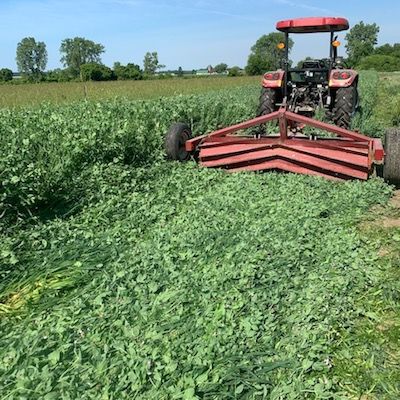As part of EFAO’s No-Till Vegetable Trials, Ken Laing is doing a lot of no-till transplanting! Here are some of his reflections on the challenges of no-till planting seed and transplant.
There are many challenges awaiting those who want to switch in whole or in part to a no-till organic growing system. Right off the start, it is good to realize that these organic systems require some tillage before a rotation to terminate a previous crops, to control perennial weeds or at some stage during the rotation to control weeds between crops. For this reason, the “no-till” part of organic vegetable production is a lot about no-till planting.
Planting into cover crops means the farmer has to master growing the cover crop well and getting enough biomass to control the weeds. For roller/crimped covers there must be very little bare soil showing after rolling because bare soil is space for weeds to germinate. On the flip side, adequate biomass to control weeds presents challenges for planting and transplanting…
Conventional no-till corn and soybean seed planters can be utilized to plant some vegetable crops. However, the row cleaners can create too much bare soil in the row. Even more, bulk density of the soil goes up in no-till planting systems so it can be hard to get enough down pressure to get seeds to the proper depth such that extra weight may have to be added to the planter. Rolled covers may leave less moisture available for germination – and there can be issues with fertility if the cover has absorbed most of the available nutrients.
Transplanting into rolled covers is very challenging because you are opening a wider slot to get the plug into the ground and the soil is full of roots tying it together so that the slot is not easily closed with the usual closing wheels on transplanters. At Orchard Hill Farm, we ended up modifying the closing wheels to push the soil back around the plug and adding some weight to the closing wheels. You can see the modified closing wheel and added weight in the photo below of transplanting a single row of sweet corn.
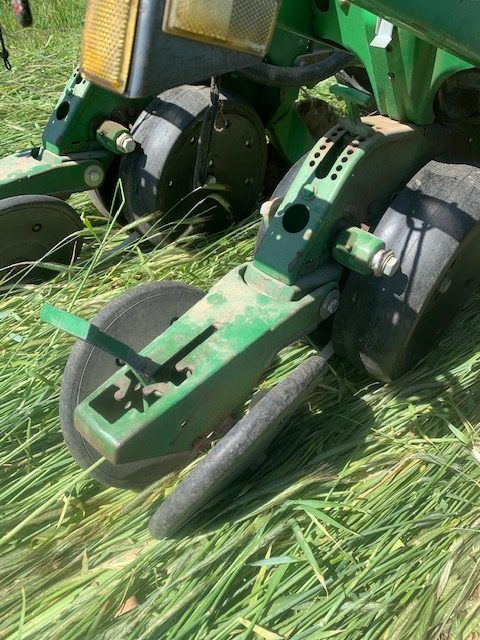
No-till planting sunflowers into rolled rye. Photo take June 12, 2020.
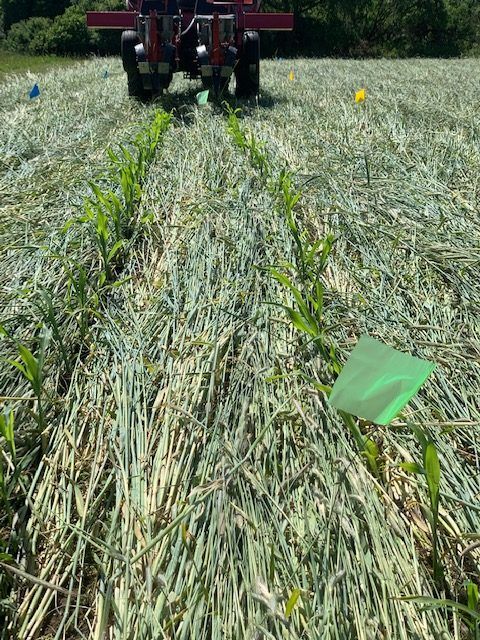
Transplanting sweet corn into rolled rye, June 2020.
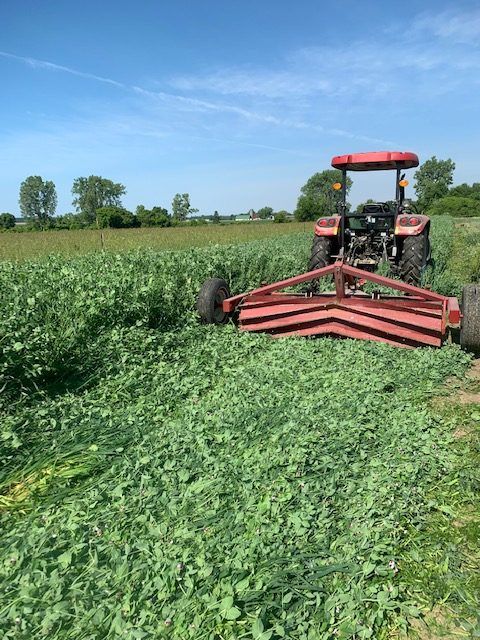
Rolling oat/peas June 20, 2020.
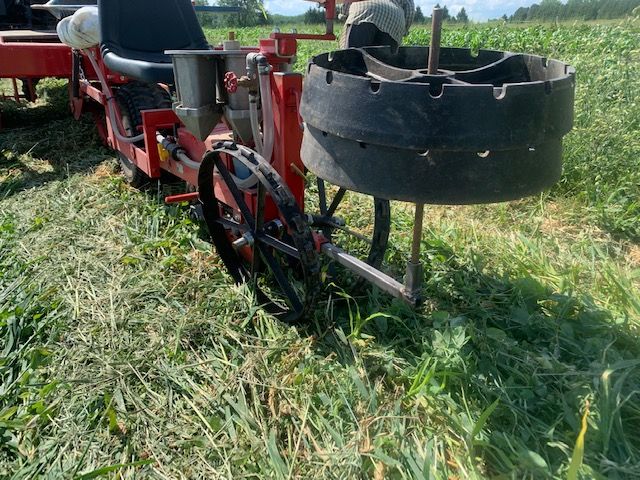
Transplanting sweet corn into rolled oats/peas, June 2020.

